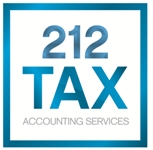Compensation practices have seen drastic change over the past decade, especially with two economic downturns that have depleted much of the job market. Employers are still finding it difficult to acquire and retain key groups of talent without offering a certain level of equity interest.
Deciding on how to compensate a former employee/partner can be difficult, as the IRS has set up stringent guidelines. Our goal is to explain the proper test to determine employee status, the ways that Federal Tax Laws treat employees differently than partners, and the risks that go along with treating a partner as an employee.
The Consequences of Offering Equity Interest to Employees
As mentioned, partnerships across the board are finding it more difficult to retain key talent without offering some sort of benefit or incentive. This has lead to many partnerships to offer their employees equity interest. However, this decision can quickly complicate proper tax filing procedures, as well as violate federal tax laws set in place by the IRS.
In General, the partnership benefits that are offered to employees are small and most employees opt out, as accepting will lead to more complex tax rules and more complicated individual income tax returns. Many partnerships continue to treat former employees, who held partnership interest, as employees for employment tax purposes – despite the fact that the IRS clearly states that the aforementioned employees/partners cannot be considered employees.
If the IRS discovers this practice, the possible consequences extend far beyond employment tax liability.For example, this may cause a grant of unvested partnership interest to fail the test for qualifying for safe harbor. To avoid this potentially severe violation of federal tax law, we shall explore how to properly determine employee status.
Determining Employee vs. Partner Status
An employee-employer status is generally defined as a relationship in which one person performs a service, while the other has the right to control and direct the individual who performs said tasks. Whether or not this relationship exists is determined based off of the circumstances of each case.
In addition, the IRS has set forth 20 factors that it has decided constitute an employee-employer relationship. Once again, the importance of each factor depends on each individual case.
The Differences in Tax Treatment – Employee vs. Employer
The US federal tax laws set many distinctions between employee and employer tax treatment. For example, employees are responsible for only half of their share of Social Security and Medicare (self-employment) taxes and pay them through payroll withholdings, while partners must pay the full amount of these employment taxes, preferably through quarterly estimated payments.
It is important to remember that an individual partner owes the entire amount of their self-employment taxes. In this case, if a partnership pays part of an individual partner’s taxes, then the partnership is required to report the amount paid on the partner’s behalf as a guaranteed payment to the partner (any additional taxes will be due at this time). Guaranteed payments to partners are reported on each partner’s K-1 form. 212 Tax Services will expand upon K-1 forms in a future 2014 blog.
Any amount of employment tax that is not paid by the partnership on an individual partner’s behalf must be paid directly by the partner.
If the partnership pays part of the individual partner’s employment taxes, and the partner is involved in other self-employment activities (and those activities lost money), then the partnership may overpay the partner’s tax liability.
Schedule Your Tax Planning Appointment with 212 Tax Services
There is much legality that must be taken into consideration when determining partner vs. employee – as well has how to properly report for tax purposes. Tax planning season is quickly approaching and our team is here for you. Our accountants are all highly trained will help you properly navigate through this process.
Our office is located in Manhattan and we provide our expertise to individuals, corporations, LLCs, partnerships and more all over the New York City area. Please feel free to contact us to set up your tax planning appointment with us.
Request a Consultation
We are able to work with your unique schedule including after-hour appointments, most weeknights, and weekends.
Call to action
Build Growth Opportunities with Extensive Business Financial Services
We serve clients in a range of industries, including hospitality, nightlife, real estate, legal, and medical.


